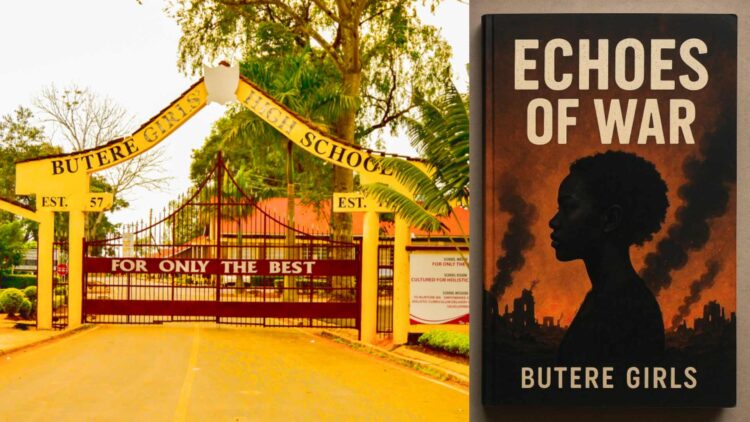Echoes of War: Butere Girls’ Bold Critique of Governance and the Generational Divide.
Butere Girls High School’s controversial play Echoes of War explores significant themes such as bad governance, disregard for the law, and the growing disconnect between the older and younger generations. This thought-provoking performance, which has sparked widespread conversation, challenges existing societal norms and highlights deep divides within the community.
Set in the Royal Velvet Emirates, a fictional kingdom situated in the Middle East, the backdrop of the play reveals a society at odds with itself. Power, tradition, and rising tension collide as the kingdom faces internal conflict. According to the playwright, Cleophas Malala, the divide between the generations has widened.
The elderly are quickly losing the trust of the youth, who, in turn, are frustrated by the old generation’s rigidity and inflexibility.
Malala emphasizes that the natural relationship between the elderly and the youth—a balance of experience and enthusiasm—seems to be unraveling. This loss of harmony is a central theme in Echoes of War, reflecting the deepening generational chasm in modern societies.
The Cast of Characters
The plot unfolds through various characters that embody the tensions within this society. The Sultan, the royal ruler of the kingdom, is portrayed as a figure of power and control, his movements and demeanor exuding authority. Mama Anifa, a devout and overprotective mother, is portrayed with emotional depth as she grapples with her daughter’s life choices.
Anifa’s mistake, revealed in the play, is becoming pregnant, a secret she confides to her mother. The bomb that Mustafa, another key character, is accused of planting in her womb turns out not to be a child, but a symbol of her desire for change—hope for a brighter future, affordable education, universal healthcare, and effective governance.
The Struggle for Change
Mustafa, who has been secretly influencing the youth to resist the outdated ways of the old, is abducted by the Sultan’s servants. Anifa, with biting irony, questions if Mustafa has also “planted a landmine” in someone’s fertile land, recognizing his role in fostering rebellion.
The plot takes a dramatic turn when the Sultan, realizing that Mustafa has been using social media to criticize the government, takes action to silence him. However, the youth, led by Anifa and others, use the power of social media and artificial intelligence to rally their peers, calling for a stand against the corruption and tyranny they face. Unrest sweeps through the kingdom as the youth demand change.
The Protests and the War
The protests in Echoes of War target several societal pillars. The youth condemn religious leaders who stifle modern thinking, preventing young minds from embracing new possibilities. They also express frustration at parents who cling to rigid traditions, labeling the younger generation as “rotten.” Their revolt is against anyone who stands in their way, and they vow to fight for a future where their voices are heard.
The fury of the protests is so intense that it brings down government institutions, reducing them to ashes and plunging the kingdom into chaos. During a particularly tense moment, an ambulance is unavailable to rush the Sultan’s son, Xavier, to the hospital, symbolizing the collapse of the kingdom’s infrastructure.
Read Also: CJ Koome Rebukes Police for Teargas Assault on Butere Girls Students
A New Beginning
In the climax of the play, the Sultan, humbled and broken, swallows his pride. He calls the youth to the table, acknowledging the importance of incorporating their voices and ideas into his administration. The Sultan’s proclamation, “Never again shall we dance to the echoes of war,” signals a shift toward a new era.
The youth, united and resolute, respond with a powerful declaration: “The war is over.” This marks the end of conflict and the beginning of a new chapter, one where the youth’s voices are no longer ignored, but respected and valued in the governance of their society.
Echoes of War: Butere Girls’ Bold Critique of Governance and the Generational Divide.



Discussion about this post